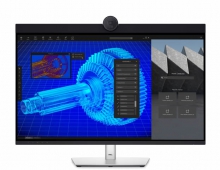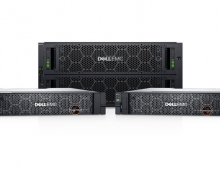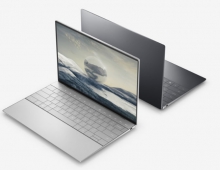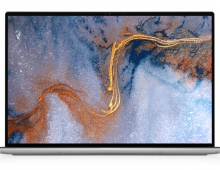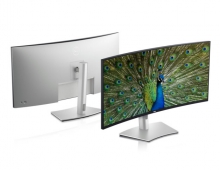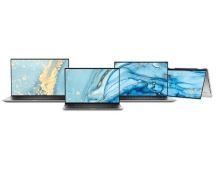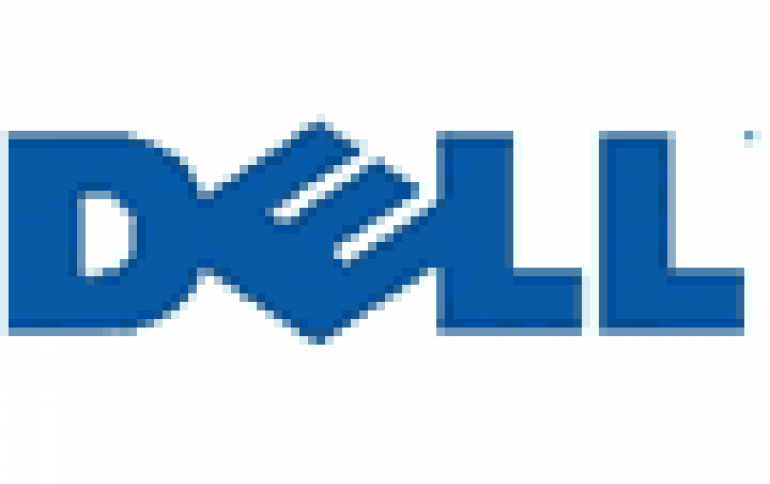
Dell expands battery recall
Dell has increased by 100,000 the number of laptop batteries it is recalling due to a potential fire hazard, while Toshiba said it would take part in Sony's voluntary battery replacement program kicked off Thursday.
Fujitsu indicated that it was also considering a voluntary recall.
Dell said it received new information that caused it to increase its recall to 4.2 million batteries from 4.1 million. It urged customers to visit www.dellbatteryprogram.com and to recheck their batteries to see if they are affected. The site has received almost 200 million hits since the recall was first announced in August, Dell said.
The problems affect battery packs containing Sony-made Lithium Ion cells. Sony has discovered that metallic particles in the cells created during the manufacturing process could cause a short-circuit. That short-circuit could in turn result in a fire, depending on the way the laptop is designed.
While the affected notebooks from Dell and Apple, which has recalled 1.8 million batteries, pose a potential fire hazard, Toshiba said its laptops are not in danger of catching fire. It said it was recalling the laptops voluntarily to ease concerns among customers.
Toshiba offered to replace 830,000 laptops, including some of its popular Satellite and Portege models. Fujitsu indicated that it would also be likely to join the voluntary recall, although details had not been announced late Friday in Japan.
Toshiba, and possibly Fujitsu, are taking advantage of a program announced by Sony on Thursday, which said it would conduct a battery-replacement program in conjunction with laptop makers worldwide.
One day earlier, Lenovo added its name to the list of manufacturers recalling Sony-made battery packs, saying it will recall 526,000 notebooks.
Other laptop makers are expected to follow suit and offer new batteries to their customers, said Takashi Uehara, a spokesman for Sony in Tokyo.
The plan might reassure consumers but will also increase the cost to Sony of the problems.
In late August, Sony said it would incur costs of between 20 billion and 30 billion (US$170 million to $255 million), but that was only for the recalls announced by Dell and Apple. Sony has not updated investors since then.
Its battery problems began in October last year when Dell approached the company about a possible problem involving Sony Lithium Ion cells used in battery packs in Dell laptops.
Sony changed its manufacturing process to lessen the chance of metallic particles being left in its products, but it wasn't until August this year after several well-publicized cases of Dell laptops catching fire that Dell began recalling batteries.
Apple followed on August 25 with its own recall of 1.8 million batteries, and on Thursday Lenovo joined the list. Together, the recalls that cite a potential fire hazard total about 6.5 million battery packs.
Separately, Toshiba last week offered to exchange 340,000 Sony notebook batteries, but not because of a fire hazard. Instead, the defective batteries could unexpectedly cut power to the notebooks, causing users to lose unsaved work, the company said.
Dell said it received new information that caused it to increase its recall to 4.2 million batteries from 4.1 million. It urged customers to visit www.dellbatteryprogram.com and to recheck their batteries to see if they are affected. The site has received almost 200 million hits since the recall was first announced in August, Dell said.
The problems affect battery packs containing Sony-made Lithium Ion cells. Sony has discovered that metallic particles in the cells created during the manufacturing process could cause a short-circuit. That short-circuit could in turn result in a fire, depending on the way the laptop is designed.
While the affected notebooks from Dell and Apple, which has recalled 1.8 million batteries, pose a potential fire hazard, Toshiba said its laptops are not in danger of catching fire. It said it was recalling the laptops voluntarily to ease concerns among customers.
Toshiba offered to replace 830,000 laptops, including some of its popular Satellite and Portege models. Fujitsu indicated that it would also be likely to join the voluntary recall, although details had not been announced late Friday in Japan.
Toshiba, and possibly Fujitsu, are taking advantage of a program announced by Sony on Thursday, which said it would conduct a battery-replacement program in conjunction with laptop makers worldwide.
One day earlier, Lenovo added its name to the list of manufacturers recalling Sony-made battery packs, saying it will recall 526,000 notebooks.
Other laptop makers are expected to follow suit and offer new batteries to their customers, said Takashi Uehara, a spokesman for Sony in Tokyo.
The plan might reassure consumers but will also increase the cost to Sony of the problems.
In late August, Sony said it would incur costs of between 20 billion and 30 billion (US$170 million to $255 million), but that was only for the recalls announced by Dell and Apple. Sony has not updated investors since then.
Its battery problems began in October last year when Dell approached the company about a possible problem involving Sony Lithium Ion cells used in battery packs in Dell laptops.
Sony changed its manufacturing process to lessen the chance of metallic particles being left in its products, but it wasn't until August this year after several well-publicized cases of Dell laptops catching fire that Dell began recalling batteries.
Apple followed on August 25 with its own recall of 1.8 million batteries, and on Thursday Lenovo joined the list. Together, the recalls that cite a potential fire hazard total about 6.5 million battery packs.
Separately, Toshiba last week offered to exchange 340,000 Sony notebook batteries, but not because of a fire hazard. Instead, the defective batteries could unexpectedly cut power to the notebooks, causing users to lose unsaved work, the company said.

